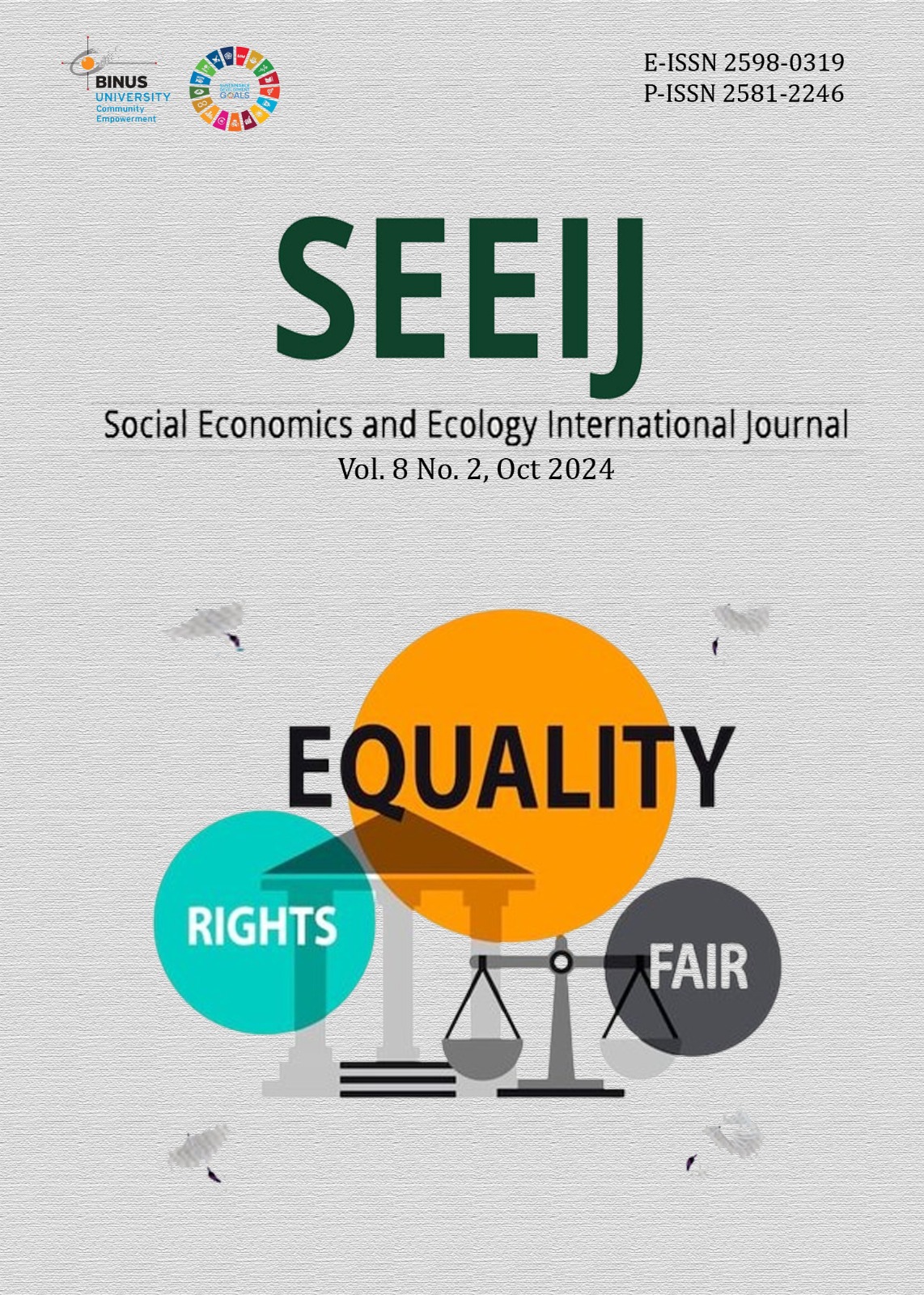SWOT ANALYSIS FOR DEVELOPING COMPETITIVE ADVANTAGES FOR ONLINE FOOD BUSINESS VIA DIGITAL MARKETING
DOI:
https://doi.org/10.21512/seeij.v8i2.12233Keywords:
Cencan food, competitiveness, marketing, sustainability, SWOTAbstract
Cencan Food, as an online food business that serves chicken dishes, snacks, and modern drinks, faces challenges in maintaining competitiveness in the increasingly competitive online food industry. This study aims to analyze the strengths, weaknesses, opportunities, and threats (SWOT) faced by Cencan Food, as well as formulate the right strategy to build competitive advantage through digital marketing. The SWOT analysis identified several key strengths of Cencan Food, such as the ability to adopt new technologies and the appeal of its products to various customer segments. However, several weaknesses found were inconsistencies in product quality and limitations in marketing resources. Key opportunities that can be utilized include increasing the use of social media and food delivery applications, while threats faced include intense competition and healthier food trends. The proposed strategies include menu diversification and implementation of a quality control system. Cencan Food can contribute to the Sustainable Development Goals (SDGs), especially for responsible consumption and production by prioritizing the use of sustainable raw materials and reducing food waste. Through this approach, Cencan Food is expected to strengthen its position in the market and achieve sustainable business growth. This study provides important insights for online food businesses in facing market challenges and taking advantage of digitalization opportunities.
References
Bresciani, S., Huarng, K. H., Malhotra, A., & Ferraris, A. (2021). Digital transformation as a springboard for product, process and business model innovation. Journal of Business Research, 128, 204-210.
Chun, S. H., & Nyam-Ochir, A. (2020). The effects of fast food restaurant attributes on customer satisfaction, revisit intention, and recommendation using DINESERV scale. Sustainability, 12(18), 7435.
Hanaysha, J. R. (2022). Impact of social media marketing features on consumer's purchase decision in the fast-food industry: Brand trust as a mediator. International Journal of Information Management Data Insights, 2(2), 100102.
Le, T. T., & Ikram, M. (2022). Do sustainability innovation and firm competitiveness help improve firm performance? Evidence from the SME sector in vietnam. Sustainable Production and Consumption, 29, 588-599.
Galli-Debicella, A. (2021). How SMEs compete against global giants through sustainable competitive advantages. Journal of Small Business Strategy, 31(5), 13-21.
Puyt, R. W., Lie, F. B., & Wilderom, C. P. (2023). The origins of SWOT analysis. Long Range Planning, 56(3), 102304.
Downloads
Published
How to Cite
Issue
Section
License
Copyright (c) 2024 rini kurnia sari, Teguh Sriwidadi; Aisyah Qanita

This work is licensed under a Creative Commons Attribution-NonCommercial 4.0 International License.
The Authors submitting a manuscript do so on the understanding that if accepted for publication, copyright of the article shall be assigned to SEEIJ Community Empowerment (CE) Bina Nusantara University as publisher of the journal.
Copyright encompasses exclusive rights to reproduce and deliver the article in all form and media, including reprints, photographs, microfilms and any other similar reproductions, as well as translations. The reproduction of any part of this journal, its storage in databases and its transmission by any form or media, such as electronic, electrostatic and mechanical copies, photocopies, recordings, magnetic media, etc., will be allowed only with a written permission from SEEIJ Community Empwerment (CE) Bina Nusantara University.
SEEIJ, the Editors and the reviewer make every effort to ensure that no wrong or misleading data, opinions or statements be published in the journal. In any way, the contents of the articles and advertisements published in the SEEIJ are sole and exclusive responsibility of their respective authors and advertisers.

This work is licensed under a Creative Commons Attribution-NonCommercial 4.0 International License.









